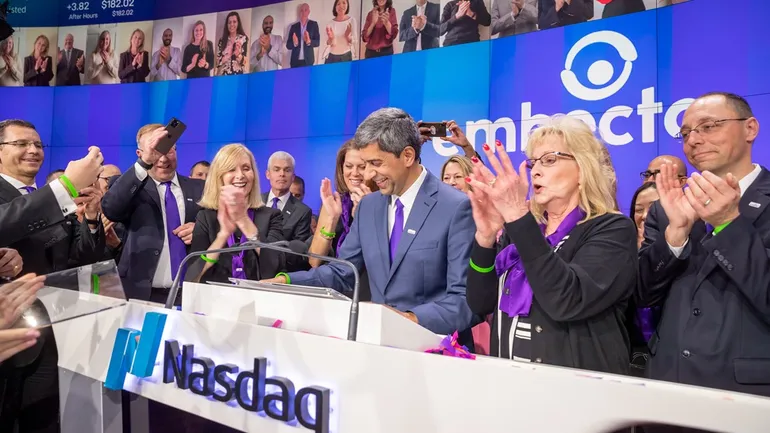Dive Brief:
- Embecta has hired advisers as it considers a potential sale, the Financial Times reported late Friday.
- The Parsippany, N.J.-based company makes insulin syringes and pen needles for managing diabetes and is developing an insulin patch-pump for people with Type 2 diabetes. It spun out of BD in 2022 and is still working to transition away from its parent company’s systems.
- Citing two unnamed sources, the Financial Times reported that Embecta could be an attractive target for private equity because of its low market value and similarities to other companies that have attracted interest from buyers. A spokesperson for Embecta declined to comment on the report, saying, “It is our policy not to comment on rumors or market speculation.”
Dive Insight:
The Financial Times reported that Embecta hired advisers from investment banking firm Centerview Partners to explore a potential sale, following “lacklustre share price performance” after its spinoff from BD. The diabetes company currently has a market cap of $878.9 million as of Monday, and its shares are down more than 60% from when it first went public.
“While we do not know whether the report is true, we are not surprised by the suggestion,” Marie Thibault, an analyst with BTIG, wrote in a research note on Monday.
Embecta’s sales growth was flat last year, and its net income declined. The company reported revenues of $1.12 billion in its 2023 fiscal year, which ended in September. Its net income of $70.4 million was down 69% compared to fiscal 2022.
In January, Embecta said it submitted a patch-pump for people with Type 2 diabetes for Food and Drug Administration clearance.
Embecta currently is trading “well below its peers on any valuation measure,” Thibault wrote. She said that may be because of investor uncertainty about Embecta’s ability to compete in patch pumps, its lack of sales growth and potential risk around long-acting insulin and GLP-1s. However, the company also has favorable aspects, “including its track record of quarterly beats, its relatively healthy operating margins (vs. many MedTech peers), market leadership, global presence, dividend, and the nearly complete separation process,” Thibault wrote.
A comparable transaction cited by the Financial Times is Baxter’s sale of its injectables spinoff to private equity firms Warburg Pincus and Advent International last year. The business, called Simtra Biopharma Solutions, sold for $4.25 billion.

